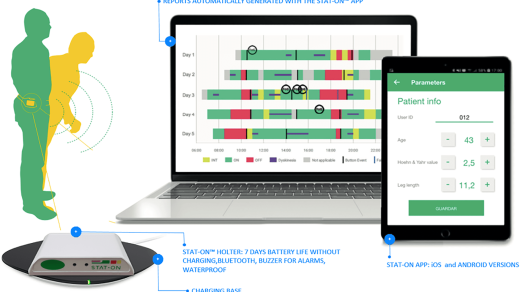
Patients with Parkinson disease who had poor sleep quality and later mid-sleep time had worse symptoms of depression, according to results of a study published in Sleep Medicine.
Mood disorders are often underdiagnosed in Parkinson disease, as the symptoms of Parkinson disease can mimic the somatic symptoms of depression. Given that poor sleep is also highly prevalent among individuals with Parkinson disease, investigators conducted a clinical study to determine the relationship between measures of sleep, motor subtypes, and depression in Parkinson disease.
The investigators from Poltava State Medical University in Ukraine and University Hospital Witten-Herdecke in Germany conducted this clinical study between 2021 and 2023. Patients (N=64) with PD were evaluated using the Unified Parkinson’s Disease Rating Scale (UPDRS), Beck Depression Inventory (BDI), Pittsburgh Sleep Quality Index (PSQI), Epworth Sleepiness Scale (ESS), and Munich Chronotype Questionnaire (MCQ) instruments. Severe depression was defined as a BDI score of 29 to 63, moderate as 20 to 28, and mild as 14 to 19; poor sleep quality was defined as a PSQI score of less than 5; and excessive daytime sleepiness as an ESS score of greater than 10.
Patients with postural instability and gait disorders subtype (PIGD; n=38) and non-PIGD (n=26) Parkinson disease had a mean (SD) age of 63.88 (1.69) and 63.40 (1.48) years, a disease duration of 7.37 (5.40) and 5.88 (4.52) years, and 52.6% and 50.0% were women, respectively.
The investigators found that total UPDRS scores were similar between patients with PIGD (mean, 48.79) and non-PIGD (mean, 46.31; P =.612).
More patients with PIGD had severe depression (23.1% vs 3.9%; P =.020), poor sleep quality (79.5% vs 53.8%; P =.028), and excessive daytime sleepiness (46.1% vs 19.2%; P =.021) than patients with non-PIGD, respectively. Patients with PIGD vs non-PIGD had later sleep onset (mean, 11:05 vs 10:49 PM; P =.028), longer mid-sleep time (mean, 2.64 vs 2.16 hours; P =.003), longer sleep latency (mean, 56.58 vs 37.81 min; P =.022), and longer sleep inertia (mean, 0.25 vs 0.16 min; P =.001).
In the univariate analysis, the investigators found that PIGD, poor sleep quality, subjective sleep quality, sleep latency, sleep disturbance, mid-sleep time, and sleep latency were significant predictors for more severe depression (all P ≤.039).
In the multivariate analysis, more severe depression was associated with poor sleep quality (odds ratio [OR], 4.90; 95% CI, 1.75-14.65; P =.003) and later mid-sleep time (OR, 2.03; 95% CI, 1.95-42.94; P =.019).
The investigators developed 2 equations to differentiate moderate depression from no depression and severe depression from no depression. Both equations included constants, mid-sleep time, and sleep quality. The model predicted severity of depression in PD (t, 0.519; P <.001) with a sensitivity for predicting severe depression of 66.7% and moderate depression of 83.8%.
“Our research shows that inadequate sleep quality correlates with worsening depressive symptoms, particularly in terms of subjective sleep quality, sleep latency, and sleep disturbances, as measured by PSQI,” the investigators concluded. “This indicates that additional research into sleep-focused interventions to enhance mental health in patients with PD is necessary.”
Study limitations include the small sample size and the limited number of clinical features analyzed.
This article originally appeared on Sleep Wake Advisor
References:
Shkodina AD, Tarianyk KA, Yu M, et al. Influence of sleep quality, excessive daytime sleepiness, circadian features and motor subtypes on depressive symptoms in Parkinson’s disease. Sleep Med. 2024:125:57-64. doi:10.1016/j.sleep.2024.11.024
This news item came from: https://www.psychiatryadvisor.com/news/poor-sleep-worsens-depression-in-parkinson-disease/


